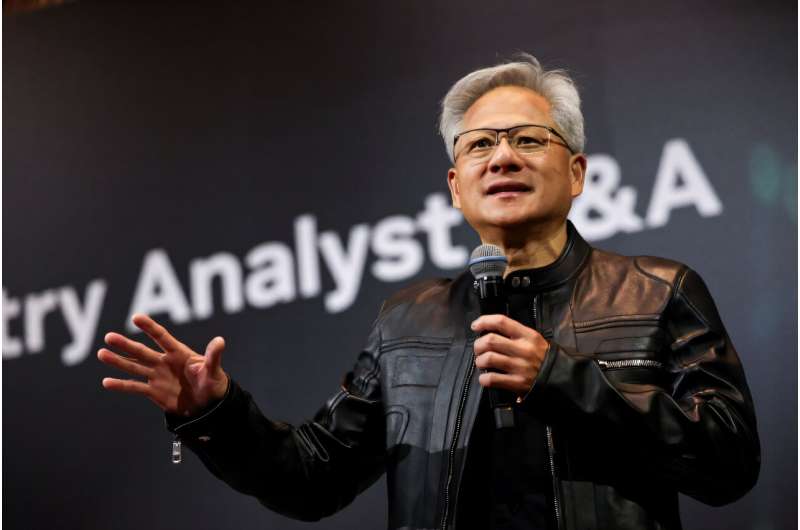
Nvidia recently announced strong earnings that surprised many, with the anticipated $4.5 billion loss due to U.S. export restrictions slightly lower than expected.
However, CFO Colette Kress cautioned during the earnings call that these export hurdles could cost Nvidia around $8 billion in the current quarter alone.
Back in April, the company informed regulators it braced for a $5.5 billion loss in the last quarter following new U.S. licensing rules regarding a key chip it’s allowed to sell in China.
According to Nvidia, U.S. officials mandated that the company needs licenses to export its H20 chips to China, due to concerns about potential applications in advanced supercomputers there, as noted in a filing to the Securities and Exchange Commission.
The licensing requirements also extend to Nvidia’s graphics processing units, or GPUs, that have similar capabilities to the H20.
“China represents one of the largest markets for AI and is crucial for global success,” Nvidia CEO Jensen Huang said during the call.
“Whoever succeeds in China is likely to lead globally; unfortunately, the $50 billion market in China is now largely off-limits for us.”
Nvidia has reached a point where it can’t reduce the capabilities of its H20 chips any more to meet U.S. export regulations, forcing the company to write off billions in unsellable inventory, Huang explained.
“U.S. policy has been based on the idea that China is incapable of producing AI chips,” Huang stated.
“That belief was always dubious, and now it has proven incorrect.”
According to Huang, China is advancing in AI without Nvidia’s technology, as domestic chip manufacturers innovate and expand their operations.
“The real question is not if China will have AI; it already does. The real question is whether American technology will power one of the largest markets in the world.”
The new regulations resulted in Nvidia reporting a $4.5 billion loss tied to H20 surplus inventory and obligations, as “demand for H20 lessened,” per their earnings report.
Additionally, the U.S. export rules prevented Nvidia from earning another $2.5 billion in revenue from H20 this quarter, the company stated.
Nvidia reported a profit of $18.8 billion against revenue of $44.1 billion, causing their stock to rise by over four percent in after-hours trading.
High Demand
Huang mentioned that interest in the company’s AI technology remains robust, with the new Blackwell NVL72 AI supercomputer—dubbed a “thinking machine”—now in full production.
“Countries worldwide are starting to see AI as a critical piece of infrastructure, much like electricity and the internet, and Nvidia is central to this significant change,” Huang remarked.
Nvidia’s high-end GPUs are in great demand from major tech companies creating data centers to support AI initiatives.
In the last quarter, Nvidia’s data center division generated $39.1 billion, marking a 10% increase from the previous year.
However, market expectations for this segment were higher.
“Nvidia exceeded expectations once again, but maintaining that leadership is increasingly challenging,” noted Emarketer analyst Jacob Bourne.
“The export restrictions to China underscore the immediate pressures from geopolitical factors; additionally, competitors like AMD are gaining traction,” Bourne added.
Nvidia achieved a record high of $3.8 billion in revenue from its gaming chip division, surging 48% and surpassing predictions.
The ongoing AI boom has led to a rebound in Nvidia’s stock price, which lost significant value after a steep decline in January due to the surprising success of China’s DeepSeek.
China’s DeepSeek recently introduced its R1 chatbot, claiming it can compete with top U.S. AI products at a fraction of the cost.
“The overarching concern is that trade tensions and potential tariffs may hinder data center growth, which could impact AI chip demand in the months ahead,” Bourne concluded regarding Nvidia’s outlook.

